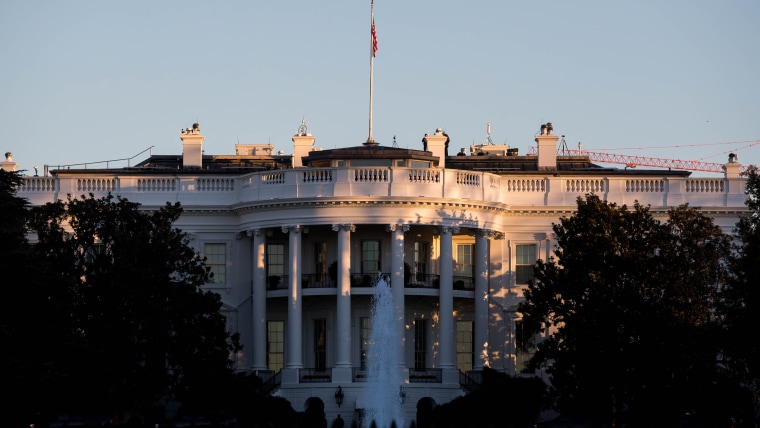After Donald Trump learned of the senior official on his team who authored an extraordinary New York Times op-ed about his administration, the president naturally turned to Twitter. "TREASON?" the president wrote, assuming the public would know what he was referring to.
It's unlikely Trump was asking a proper question in need of an answer, but it's worth pausing to answer it anyway. Dylan Matthews explained:
While there's obviously a colloquial sense in which "traitor" is used as a general descriptor of disloyal people, the term also has a formal legal definition in the Constitution, and as Sen. Lindsey Graham (R-SC) was swift to note, the op-ed doesn't qualify.Graham is right. The op-ed author isn't guilty of treason.
"Treason" is a specific, legally defined thing. It refers to "levying war" against the United States or providing "aid and comfort" to an enemy of the United States.
It is, to be sure, an extraordinary development when White House officials, convinced that an unstable president is dangerous, feel it's necessary to undermine and circumvent their boss. It's certainly legally provocative. One could make a compelling case that it may even rise to the level of constitutional crisis.
But treason it isn't.
The broader point, however, isn't to fact-check misguided presidential tweets. Rather, what stands out is just how often Trump thinks he's uncovered evidence of treason -- which in his mind, seems to refer to "people doing stuff to him that he doesn't like."
In June, for example, the president was so bothered by media coverage of his summit with North Korea's Kim Jong-un that he described the reports as "really almost treasonous, if you want to know the truth."
We do want to know the truth -- and this isn't it.
But Trump keeps using the word anyway. In January, he falsely accused a pair of FBI officials of having committed treason. A month later, while whining that Democrats failed to applaud his State of the Union address to his satisfaction, the president said "they certainly didn't seem to love our country very much" – and then raised the prospect of Democratic "treason."
Trump routinely uses words he doesn't understand, so it's entirely possible that he's simply confused about the actual meaning of the word "treason." More alarming, though, is the possibility that Trump isn't satisfied with the real definition, and he'd like to expand its meaning to include criticisms of his presidency.
Given his authoritarian tendencies and public praise for the leadership styles of totalitarian leaders, the latter is an unsettling possibility.
